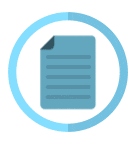Teachers' Questioning Strategy to Teach Speaking at MA An-Nidhomiyah
DOI:
https://doi.org/10.31597/sl.v7i1.750Keywords:
speaking skill, questioning strategy, teaching speakingAbstract
This study aims to describe the implementation and the students’ responses toward the use of questioning strategy in teaching speaking. The research design of the study was qualitative which focus on case study research. It involved the eleventh-grade students of MA An-Nidomiyah as the subject of the research. The data were obtained through the observation during the teaching and learning process and an interview with the students. In this study, the researcher accomplished several steps to analyze the data, namely organizing and familiarizing, coding and reducing, interpreting, and representing. The result of the research finding proves that it is effective to use this strategy. So, using a questioning strategy can improve speaking skills and knowledge of vocabularies. Furthermore, it is suggested that questioning strategy can be effectively used in speaking class.
References
Armasita. (2017). Improving Students’ Speaking Skill In English Lesson With Action Learning Strategy At Eight Grade Of Mts Pab 1 Helvetia. Repository, 1-68.
Adedoyin, O. (2019). An Investigation of the Effects of Teacher’s Classroom Questions on the Achievements of Students in Mathematics: Case Study of Botswana Community Junior Secondary Schools. . European Journal of Educational Studies.
Bahadorfar, M. &. (2014). Technology in Teaching Speaking Skills. Acme International Journal of Multidisciplinary Research Available.Volume-11, Issue-IV.
Akhyak, D., & Indramawan, A. (2015). Improving the Students’ English Speaking Competence through storytelling (Study in Pangeran Diponegoro Islamic College (STAI) of Nganjuk, East Java, Indonesia). International Journal of Language and Literature.
Hendra, S. (2016). Cooperative Learning Effectiveness to Teach Speaking: Teams Games-Tournament (TGT) Versus Students Teams Achievement.
Alfi, I. (2015). Improving The Students’ Speaking Skills Through Communicative Games For The Grade Viii Students of MTS N Ngemplak. Eprints, 1-129.
Septiany, L. (2014). The Effect of Using Fluency Workshop Technique Toward Students' Speaking Ability in Performing Monolog of Second Year at MAN 1 Pekanbaru. Repository, 7-25.
Julio, W. M., & Contreras, O. R. (2018). Transactional Communication Strategies to Influence Pre-service Teachers' Speaking Skills. Gist Education and Learning Research Journal, 33-55.
Ma, X. (2018). The Skills of Teachers Questioning in English Classes. International Education Studies, 1(4).
Temiz, G. (2015). The Impact Of Teacher Questions On Student Learning In EFL. Journal of Educational and Instructional Studies in The World, 2(1).
Franke, M. L. (2019). Teacher Questioning to Elicit Students ’ Mathematical Thinking in Elementary School Classrooms. Journal of Teacher Education, 60(4), 380-392.
Toni, A. &. (2019). The Status of Teacher's Questioning and Student's Responses: The Case of an EFL Class. Journal of Language Teaching and Research, 4(3).
Siagian, U. M., & Adam. (2017). An Analysis of Students' Anxiety in Speaking. Journal Anglo-Saxon, 3-9.
Mohajan, H. K. (2018). Qualitative Research Methodology in Social Sciences and Related Subject. Journal of Economic Development, Environment, and People, 23-48.
Nassaji, H. (2015). Qualitative and Descriptive research: Data Type versus Data analysis. Language Teaching Research, 129-132.
Downloads
Published
How to Cite
Issue
Section
License
1. Copyright of this journal is possession of Editorial Board and Journal Manager, by the knowledge of author, whilst the moral right of the publication belongs to the author.
2. Legal formal aspect of journal publication accessibility refers to Creative Commons Atribution-ShareAlike (CC BY-SA), implies that this license lets others remix, adapt, and build upon your work even for commercial purposes, as long as they credit you and license their new creations under the identical terms. This license is often compared to “copyleft” free and open source software licenses.
3. Every publications (printed/electronic) are open access for educational purposes, research, and library. Other that the aims mentioned above, editorial board is not responsible for copyright violation















